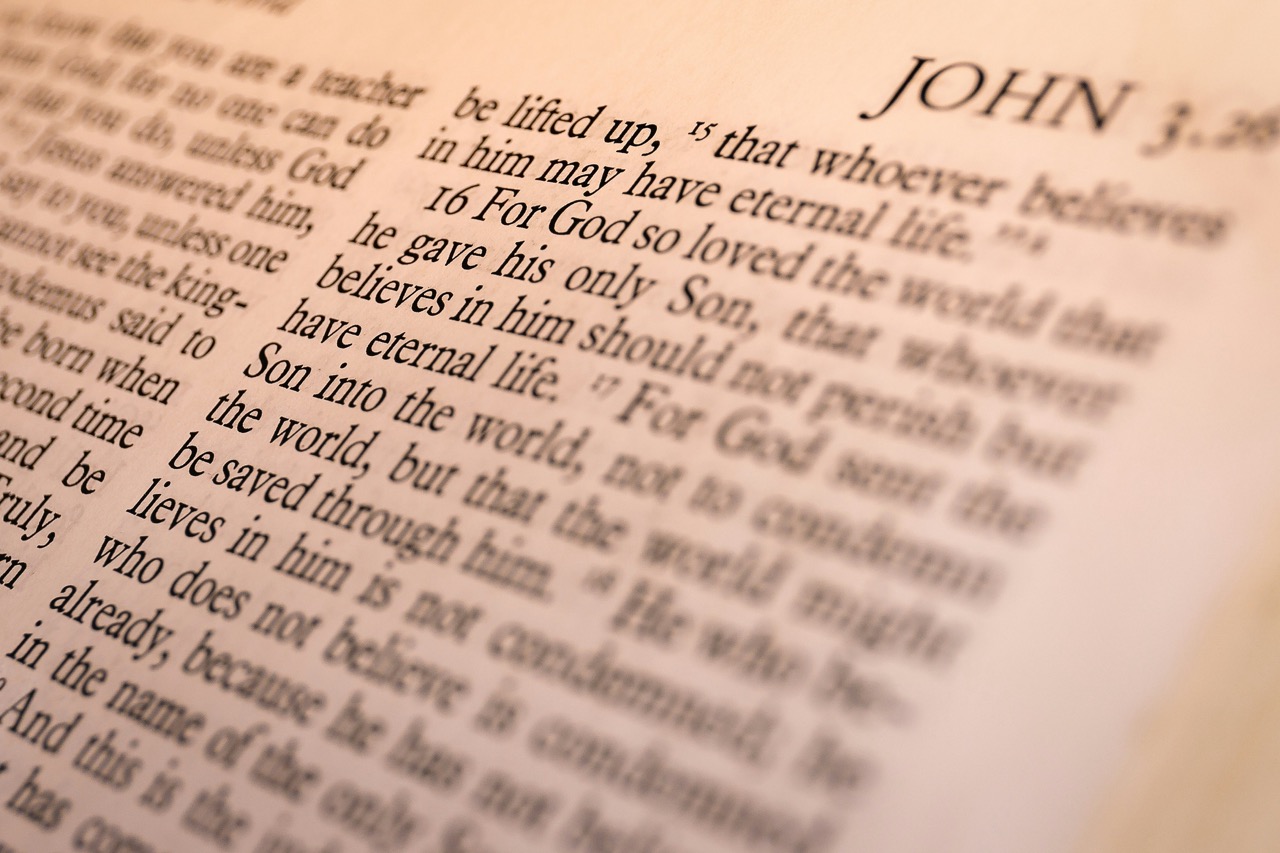How to Stay Faithful in a Secular World

In a world increasingly shaped by secular values and diverse belief systems, maintaining one’s faith can be a challenging yet rewarding journey. The clash between personal beliefs and societal norms often leaves individuals grappling with doubt and uncertainty. However, the quest for faith in such an environment can also be a profound opportunity for growth, reflection, and deepening one’s understanding of spirituality. This article aims to guide you through practical steps and insights on how to stay faithful amidst the complexities of a secular world.
Navigating Faith in a Landscape of Secular Values
In today’s society, secular values often dominate conversations, leading many to question the relevance of faith. The prevalence of skepticism can make it seem as though belief systems are outdated or irrelevant. However, navigating this landscape doesn’t necessitate abandoning one’s faith; rather, it invites a deeper exploration of what those beliefs mean personally. Engaging with different perspectives can enrich one’s understanding and allow for a more profound, resilient faith to emerge.
Living in a secular world also provides the chance to practice and articulate one’s beliefs. While it may be challenging at times, discussing faith in a respectful manner can clarify your own beliefs while also bridging gaps with others. It’s crucial to approach these conversations with openness and curiosity, understanding that faith can coexist with diverse perspectives.
Understanding the Essence of Faith in Daily Life
Faith is more than just a set of beliefs; it is an ongoing practice that shapes how we interact with the world. It is woven into the fabric of our daily lives, influencing our choices, actions, and relationships. Understanding this essence requires a commitment to recognizing and nurturing the spiritual aspects of everyday experiences. Whether through prayer, meditation, or moments of gratitude, integrating faith into daily life allows it to flourish even in a predominantly secular environment.
Moreover, cultivating an awareness of the interconnectedness of life can deepen your faith. Recognizing the divine in everyday occurrences—like a friendly gesture from a stranger or the beauty of nature—can serve as reminders of a higher presence. With each small acknowledgment, faith can become a vibrant part of your life, grounding you amidst the noise of secular distractions.
Building a Strong Foundation: The Power of Belief
A strong foundation in faith is built on consistent reflection and practice. Identifying the core principles that resonate with you is essential to establishing a belief system that can withstand external pressures. This foundation serves as an anchor, providing solace and direction when faced with uncertainty. Embracing personal beliefs allows individuals to stand firm in their convictions, even when external influences challenge their worldview.
Additionally, understanding the transformative power of belief can inspire you to live authentically. The way you embody your values can influence those around you, creating ripples of change in your community. By affirming your beliefs through actions, you create a more profound connection to your faith, fostering resilience that can withstand the secular winds of change.
Embracing Community: Finding Like-Minded Souls
The journey of faith can feel isolating, especially in a secular world. However, seeking out a supportive community can significantly enhance your spiritual experience. Engaging with like-minded individuals fosters a sense of belonging and understanding, allowing you to share experiences, challenges, and triumphs. This community can be a source of encouragement and accountability, helping you navigate the complexities of faith together.
Moreover, a supportive community can facilitate growth by providing diverse perspectives within the framework of shared beliefs. Participating in group activities—such as study sessions, volunteer work, or discussion groups—can reinforce your convictions while also deepening your understanding. The bonds formed in these communities can become a vital source of strength, reminding you that you are not alone in your spiritual journey.
Daily Practices to Cultivate Your Spiritual Resilience
Establishing daily practices is crucial for nurturing faith in a secular world. Simple rituals—such as morning prayers, evening reflections, or gratitude journaling—create intentional moments for spiritual connection. These practices not only ground you but also remind you of the principles and values that guide your life. Over time, they can cultivate resilience, allowing you to approach challenges with a sense of peace and purpose.
Additionally, integrating mindfulness into your daily routine can enhance your spiritual practices. Taking moments to pause and reflect on your thoughts and actions can deepen your awareness of your beliefs and their impact on your life. As you cultivate this mindfulness, you may find it easier to stay steadfast in your faith, even when faced with the secular pressures surrounding you.
The Role of Reflection in Strengthening Your Faith
Reflection is a powerful tool for strengthening faith. It encourages individuals to assess their beliefs, confront doubts, and embrace growth. Taking time to contemplate your spiritual journey allows you to identify areas of strength and aspects that may need nurturing. This introspection can lead to a clearer understanding of your faith, enabling you to articulate it more effectively in a secular world.
Moreover, reflective practices can illuminate how faith shapes your interactions with others and the broader world. By considering your choices and their alignment with your beliefs, you can make more intentional and meaningful decisions. This awareness fosters a sense of agency and purpose, reinforcing your commitment to living a faithful life, even amidst external influences.
Balancing Modern Life with Spiritual Commitments
In a fast-paced, modern world, finding the balance between daily responsibilities and spiritual commitments can be challenging. It requires intentionality and prioritization to ensure that your faith remains a central aspect of your life. Establishing boundaries and creating time for spiritual practices can help maintain this balance, allowing you to engage with both your secular duties and spiritual commitments authentically.
Moreover, flexibility is key in navigating this balance. Life is often unpredictable, and maintaining a rigid schedule may not always be feasible. Embracing adaptability allows you to weave spiritual moments into your day, whether through impromptu prayers, reflections during a commute, or engaging in acts of kindness. This fluidity reinforces the idea that faith can coexist with the demands of modern living, enriching both spheres of your life.
Overcoming Doubts: Finding Clarity in Uncertainty
Doubt is a natural part of the faith journey and can often arise in a secular world. It’s essential to approach these moments of uncertainty with compassion, recognizing that questioning beliefs can lead to deeper understanding and growth. Embracing doubt doesn’t mean abandoning faith; instead, it provides an opportunity to engage with it more profoundly. Seek out resources—books, discussions, or mentors—that can help guide you through these challenging times.
Additionally, sharing your doubts with trusted friends or community members can be incredibly liberating. Opening up about your uncertainties not only alleviates feelings of isolation but also fosters deeper connections with others. In doing so, you may discover that many share similar struggles, and together you can explore these complexities, finding clarity and strength through shared dialogue.
The Importance of Intentional Choices in Relationships
Faith shapes how we approach relationships, guiding us in our interactions with others. In a secular world, it’s crucial to remain intentional about the relationships you cultivate. Surrounding yourself with individuals who respect and support your beliefs can provide a nurturing environment for your faith to flourish. Intentionality in relationships involves establishing boundaries and being mindful of the influences that surround you.
Moreover, fostering relationships built on mutual respect and understanding can create a space where open dialogue about faith is welcomed. Engaging in conversations that explore beliefs without judgment encourages personal growth and strengthens connections. As you remain intentional in your choices, you not only protect your faith but also contribute to a community that celebrates diversity and understanding.
Practicing Compassion: A Faithful Response to Challenges
Compassion is a powerful expression of faith, especially in a secular world often marked by division and conflict. Responding to challenges with empathy and kindness can be a reflection of your beliefs in action. This approach not only strengthens your faith but also fosters a sense of community, as acts of compassion inspire others to reflect on their values and beliefs.
Moreover, practicing compassion in difficult situations cultivates spiritual resilience. When faced with adversity, choosing to respond with love and understanding can transform your perspective and reinforce your commitment to your faith. As challenges arise, remember that each act of kindness can be a testament to your beliefs, illustrating that faith is not only about personal convictions but also about how you engage with the world around you.
Sharing Your Journey: The Impact of Open Dialogues
The journey of faith is often enriched through sharing experiences with others. Engaging in open dialogues allows individuals to articulate their beliefs and explore the diverse ways faith manifests in different lives. Through storytelling, you not only affirm your faith but also create space for others to share their journeys, fostering a sense of community and understanding.
Additionally, sharing your struggles and triumphs can inspire others who may be navigating similar challenges. By being vulnerable and honest about your experiences, you encourage a culture of support and connection. This openness not only strengthens your own faith but also encourages those around you to embrace their journeys with authenticity and courage.
Celebrating Small Victories: Faith in Action Daily
In the midst of life’s complexities, it is vital to celebrate small victories in your faith journey. Each moment of connection—whether in prayer, acts of kindness, or reflections—represents a step forward in living your faith authentically. Recognizing these victories helps cultivate a sense of gratitude and reinforces the importance of faith in everyday life.
Moreover, acknowledging these small successes can build momentum for larger commitments to your spiritual journey. Each victory, no matter how insignificant it may seem, contributes to a deeper understanding and appreciation of your beliefs. As you celebrate these moments, you create a holistic view of faith that encompasses both the mundane and the miraculous, reminding you of its ever-present influence in your life.
Staying faithful in a secular world is an ongoing journey that requires intention, reflection, and community. By embracing the complexities and challenges, you can cultivate a deeper understanding of your beliefs while navigating modern life. Through daily practices, compassionate interactions, and open dialogues, faith can not only survive but thrive amidst secular values. Remember, every step taken in faith—no matter how small—contributes to a larger narrative of resilience, connection, and spiritual growth. Embrace your journey, and let your faith be a light that shines brightly in the world around you.




